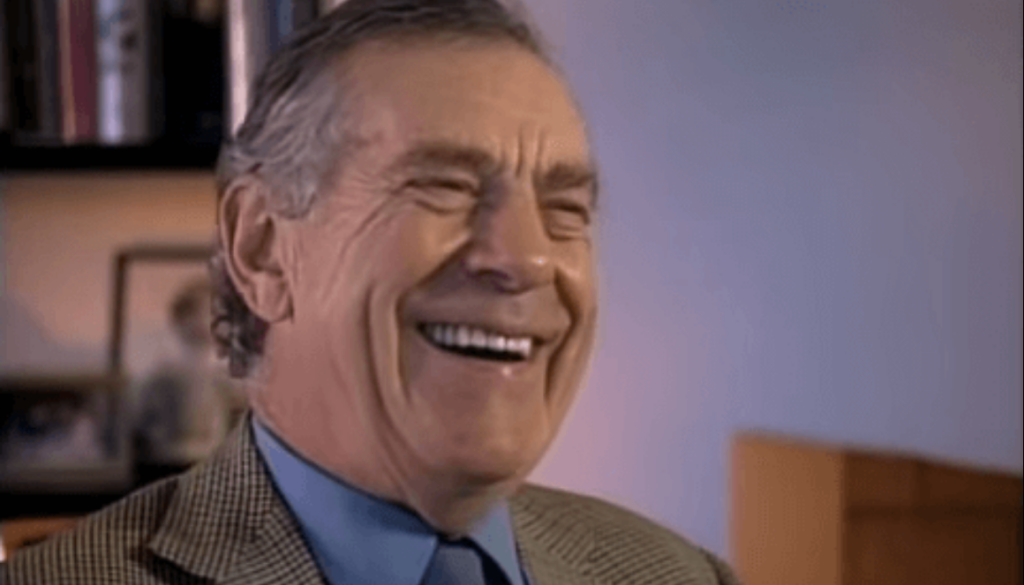Morley Safer: A Rebel With A Typewriter
Easily one of the most legendary journalists and well-respected on-air personalities, Morley Safer has died at the age of 84, and I pray to high heaven he will remain a figure in this generation’s media landscape for years to come. I’m sure younger millennials read about Safer’s retirement from 60 minutes and his subsequent passing, but it probably wasn’t a blip on their proverbial radar. The journalism field and journalists themselves are not the heroic figures our nation once prided them to be—Brian Williams was the closest resemblance to one in quite a while, and we all know how that train derailed.
The media landscape is changing for a lot of journalists, whether they like it or not, and that’s put a huge strain on the quantity of stories being released, but more importantly the quality. For six decades and nearly 50 years of that timeframe devoted to his post at 60 Minutes, Morley Safer prided himself on the quest for the most intriguing adventure possible, personal resources and emotional strain be damned. His soothing voice and quick yet calming wit made any piece with his name attached to it a must watch, with writing (always crafted to perfection with a type writer) accompanying his works that was elegant but accurately simple.
Safer wasn’t afraid to ask the tough questions in interviews however, with a lack of pandering towards the Madoff family and a reality-check for Alec Baldwin’s nasty comments made towards his young daughter. These are moments in television that make a journalism graduate like myself extremely proud, but Safer’s grit stems from experiences I’ll never be able to understand or mimic.
The Toronto-born Safer began his storied career with impatience; he dropped out of college at the age of 19 because the urge to report was too strong for him to ignore. After spending time with the Canadian Broadcasting Corporation and CBS News’ London Bureau, in 1965 Safer was tasked with opening up a new bureau in Saigon due to a growing conflict in Vietnam. That conflict famously resulted in a full-scale war, with guerilla combat and military atrocities the likes of which Americans had never experienced before.
Morley Safer found himself in the middle of a volatile war zone, and he did what he believed was the only thing to do: He reported it—straight up and with a lack of favoritism towards a specific side. In early August of 1965, he covered a group of Marines and their interaction with the small village of Cam Ne that would permanently alter the United States military’s reputation forever. Believed to be helping rebel forces, villagers woke up to young Marines torching their thatched huts and destroying all of their belongings. As Safer emphatically put it, “the Marines went on a search-and-destroy mission, but it really was a destroy mission.”
A shining moment in a career that would be far from over, Safer came royally (or presidentially) close to losing his job because of a story that sparked doubt across the United States. President Lyndon Johnson reportedly called the head of CBS for Morley’s firing, citing that he could potentially be a ‘communist’ and threatened to leak ‘embarrassing information’ about Safer’s personal life to the public.
Not backing down and sensing Safer wasn’t either, Frank Stanton refused to fire his reporter and instead influenced a new generation of reporters to seek out the full truth and report it, no matter the brutality involved or foreign affairs that may be affected. Safer was never truly welcomed by the American government again but that didn’t matter, he formed a rebellion with his words that made an impact on the lives of so many watching at home, including yours truly.
James Orlay is a Public Relations Associate at Flackable, a national public relations and digital marketing agency supporting the communications needs of registered investment advisors (RIAs) and other forward-thinking financial services firms. To learn more about Flackable, please visit www.mariaa191.sg-host.com. Follow James on LinkedIn.




